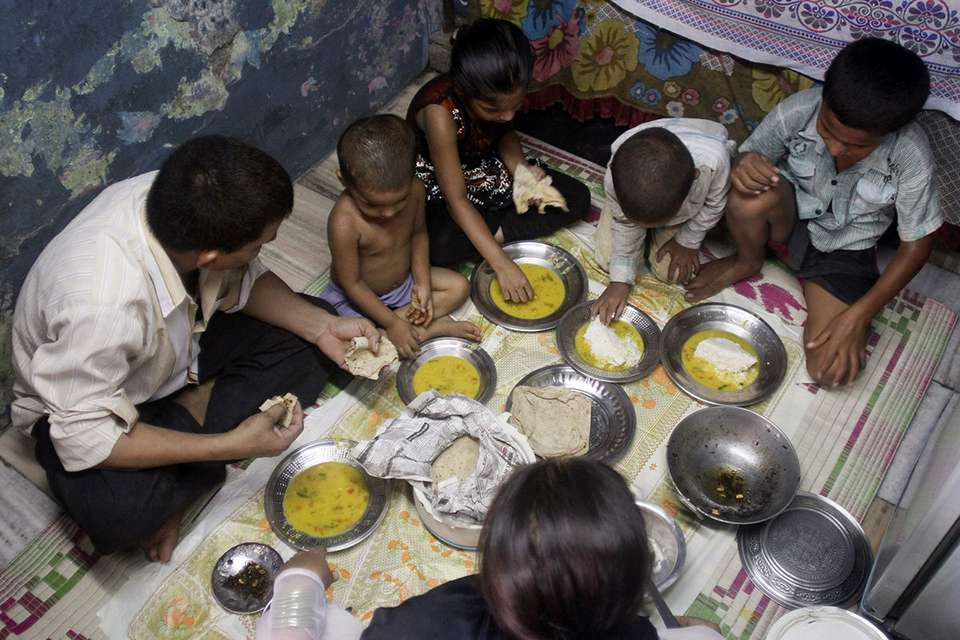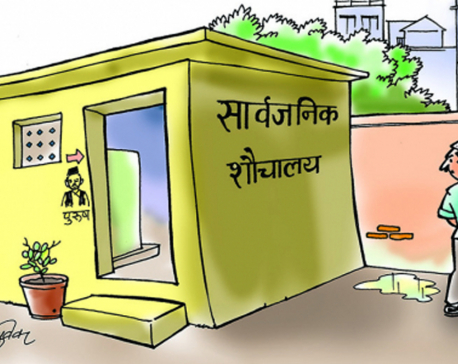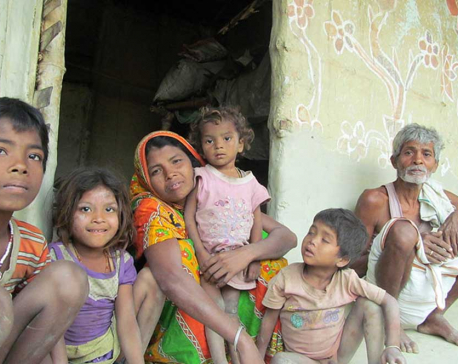
OR
International Day for the Eradication of Poverty
Global aid, local focus: the mission to end poverty by 2030
Published On: October 17, 2018 06:00 PM NPT

As the UN marks the International Day for the Eradication of Poverty on Wednesday, aid experts say donors must work closely with local governments, which in turn must do more to foster the economic growth that could lift millions out of poverty.
In the last 25 years more than 1 billion people have emerged from extreme poverty and the global poverty rate is now lower than at any other time in history, according to the World Bank.
The UN’s Millennium Development Goals of 2000 agreed to halve the number of people living in extreme poverty and hunger by 2015, a goal that was met ahead of schedule. The poverty rate fell from nearly 36 percent in 1990 to 10 percent in 2015 (the latest World Bank figures available) – or an average of 1 percent a year. The bank forecasts that extreme poverty rates will have declined further, to 8.6 percent, by the end of 2018.
Picking up where the Millennium Development Goals left off, the UN’s Sustainable Development Goalsof 2015 now aim to “end poverty and hunger everywhere” by 2030. But the effort to achieve this goal may face challenges from a concurrent rise in the number of poor who are living in nations with weak central governments.
An LSE-Oxford report on growth and development released in April found that by 2030, half of the world’s poor will be living in “fragile states” – those nations so beset by conflict or corruption that the leadership lacks the ability or legitimacy to provide basic public services, sustain economic growth or create jobs.
Under such challenging circumstances, international agencies – including NGOs, donor countries and multilateral institutions like the UN and IMF – must fundamentally rethink their approaches, including adopting a more realistic view of what can be achieved locally, the report found. Many programmes fail because they overestimate what a struggling government is capable of achieving while other failures result from governments being coerced into adopting projects or programmes that do not address their needs.
Above all, donors "must stop setting out long lists of unachievable objectives and unrealistic timetables, and start working with governments rather than around governments”, the report said.
You May Like This

Where people sell grass to pay for toilet
NEPALGUNJ, Dec 13: There are 24 houses in a row at Ghasiyaran Tole of Nepalgunj Sub-Metropolitan City. The settlement has... Read More...

Badis turning to Christianity to ‘overcome poverty, caste discrimination’
TIKAPUR, May 15: Ramesh Badi of Lamkichuha Municipality – 3 was extremely worried about his son’s health. Doctors had declared that... Read More...

Bonded poverty in Tarai-Madhes
In Nepal’s remote outback, the rich loan-sharks force poor farmers and aspiring migrant workers to sign promissory notes, agreeing to... Read More...




Just In
- MoHP cautions docs working in govt hospitals not to work in private ones
- Over 400,000 tourists visited Mustang by road last year
- 19 hydropower projects to be showcased at investment summit
- Global oil and gold prices surge as Israel retaliates against Iran
- Sajha Yatayat cancels CEO appointment process for lack of candidates
- Govt padlocks Nepal Scouts’ property illegally occupied by NC lawmaker Deepak Khadka
- FWEAN meets with President Paudel to solicit support for women entrepreneurship
- Koshi provincial assembly passes resolution motion calling for special session by majority votes







_20220508065243.jpg)






Leave A Comment